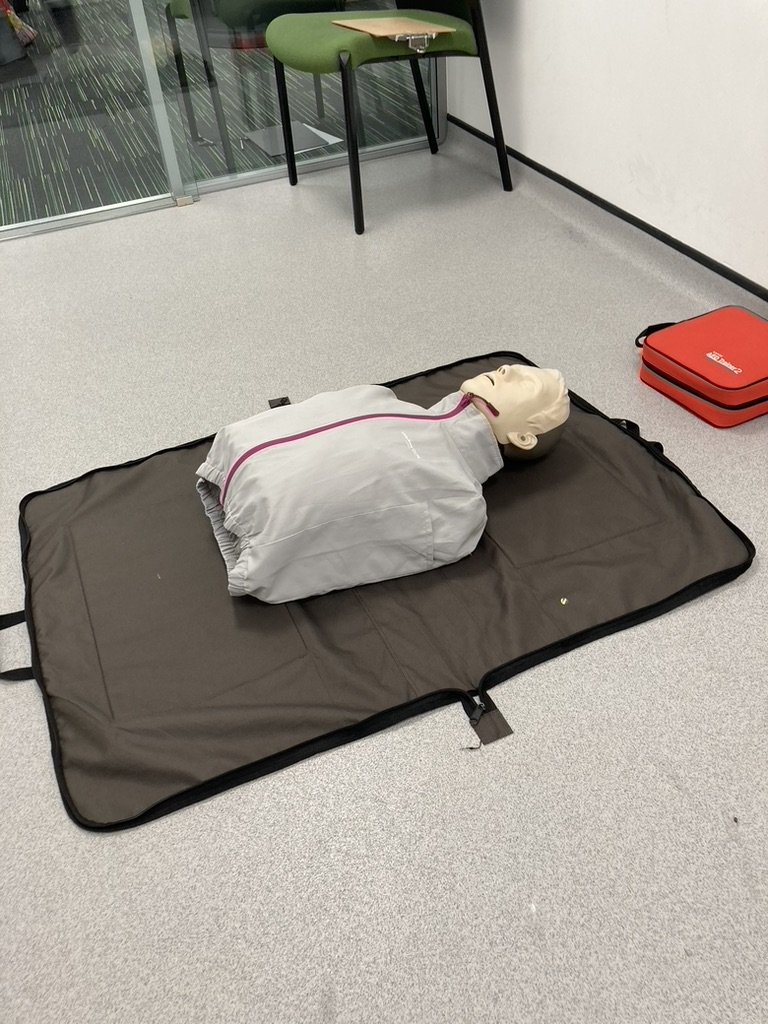
Primary Care Teaching
Basic life support
Core teaching for general practices to ensure that all staff are confident and skilled in assessing the collapsed patient and initiating basic life support.
I cover Basic Life Support training for 10 – 12 people in an hour-long session, including use of an Automated External Defibrillator.
This includes certificates for all attendees and a practical demonstration by all staff that they can safely perform BLS.
If there are clinicians present, I also offer an update on anaphylaxis as that is a frequently requested topic.
Discounted rates available for multiple sessions booked for the same day.
CQC Guidance
CQC recommends all clinicians receive annual resuscitation training including an assessment. The guidance for non-clinical staff is that they should ‘generally’ have annual updates, but a local risk assessment can be undertaken to assess the likelihood of them encountering a patient requiring resuscitation. (CQC Myth Buster 1; Resuscitation Council Quality standards)
Northumberland GP Surgery:
“The team just wanted to let you know that we successfully resuscitated an 85 year old this morning. Another example of how well your training is received here!!”
sepsis training
CQC and RCGP guided training in sepsis recognition and management
Early detection of sepsis is vital for everyone in primary care – from the reception team on the phone to the clinicians making a diagnosis and considering whether emergency referral is required.
In my Sepsis training I ensure practice staff recognise and respond to deteriorating patients and understand more about sepsis. I cover the use of sepsis tools using case studies. Each session is one hour long and can accommodate up to 20 people.
Discounted rates available for multiple sessions booked for the same day.
CQC guidance
CQC inspections expect practices to take measures to help manage the risks associated with sepsis including empowering and training reception staff and will look at training, triage, equipment, safety netting and sepsis assessment tools as part of their key lines of enquiry (CQC Myth buster 88: S1.5, S1.8, S2.6, S3.3)
CQC Urgent care support
Preparation for a CQC visit focussing on urgent care aspects
In my CQC Urgent Care support session I will ensure that there is adequate risk assessment for emergency equipment, medicines, audit tools and training and provide the documentation to help you prepare for this aspect of the inspection.
Any CQC inspection requires a thorough understanding of the areas of assessment and an ability to easily show the inspecting team the evidence needed in each area.
The CQC Urgent Care support session includes meeting with relevant practice staff, development and completion of risk assessments.
Urgent care teaching
Bespoke teaching on any aspects of Urgent Care
With 14 years’ experience as a consultant in Emergency Medicine I have taught all grades of clinician about all aspects of urgent and emergency care.
In my urgent care session for primary care clinicians, I can cover any clinical issues that the practice requires. The most commonly requested theme is ‘Who needs admitting?’ covering the topics:
Acute Coronary Syndrome
Acute Back Pain
Acute Headaches
Acute Red and/or Painful Eye
Acute testicular pain
Atypical stroke
Bites and Stings
Cauda Equina
Choking
Concussion
Dental presentations that aren’t dental!
Electrical injury
Emergency Musculo-skeletal conditions
Limping child
NEWS scoring
Risk management in urgent care
Safety Nets
Sprains and strains
Telephone consultations
Tendon ruptures
Please contact me for bespoke training packages, or I can cover a selection of the above in a one or two hour session.
Regional GP Trainee online teaching:
“Very good teaching. This was very helpful and spot on.”
“Brilliant presentation. Very experienced educator with clear thoughts.”
“Great session with content that hasn’t been delivered elsewhere.”
The GP training business of JMAC education is to ensure primary care practices have basic life support, defibrillator training, sepsis awareness and urgent care training that meets CQC requirements.
Could your practice be next?
Other educational sessions provided by JMAC education include workshops on Clinical Decision Making, Effective Presentation Skills, Leadership and Simulation Training.





